‘Neural Networks Are Something that Move the World Forward’
On September 4, the HSE University building on Pokrovsky Bulvar hosted ARTificial Fest, an event devoted to neural network art. The festival was organised by the HSE University Faculty of Creative Industries, the HSE Career centre, and the Chisty List (‘Blank Page’) student organisation. The event was open not only to students and staff of HSE University, but also to anyone interested in the blending of machine algorithms and art.
ARTificial Fest is a new one-day student festival devoted to the role of AI in creativity. Throughout the day, visitors could enjoy various games and masterclasses from representatives of Sber, VK Education, Skillbox, MTS AI, and the HSE University faculties of Creative Industries and Computer Science. The festival also featured exhibitions of fantastical paintings generated by the Kandinsky 2.2 AI on the topic of the future of humanity.
The idea behind ARTificial Fest originated with four students of the HSE University Faculty of Creative Industries: Timur Luzyanin, Elizaveta Karpushina, Elina Valeeva, and Kirill Kashtanov.
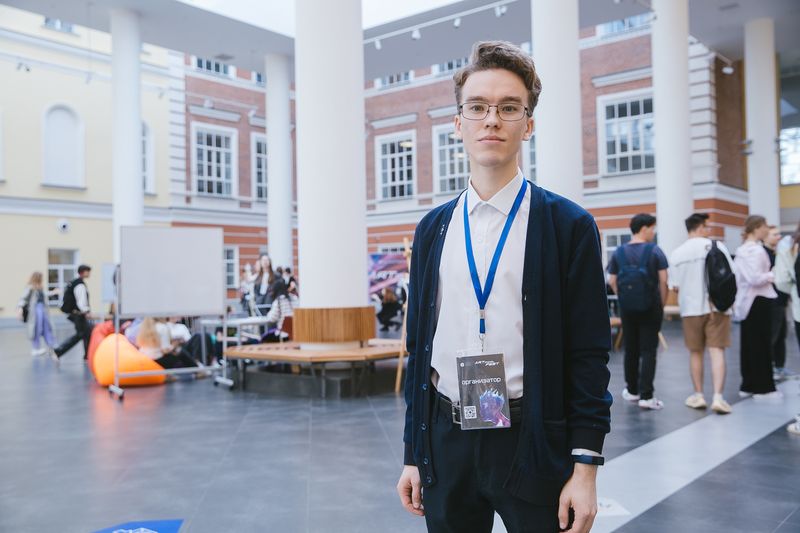
‘We wanted to create something and decided to take part in the “Tvoi Khod” all-Russia student competition, part of the Russia—Land of Opportunities platform,’ explains Timur Luzyanin, second-year student of the Bachelor’s in Media Communications. ‘As part of the competition, we had to implement a project by September 15. We had the idea to organise a festival in the central atrium of our building on Pokrovka, but there was one problem—which topic to choose. We realised that AI art is a hot topic right now.’
Organising the festival was ‘extremely difficult,’ Timur admits, but that did not phase the team. ‘We would like to hold it every year,’ he says.
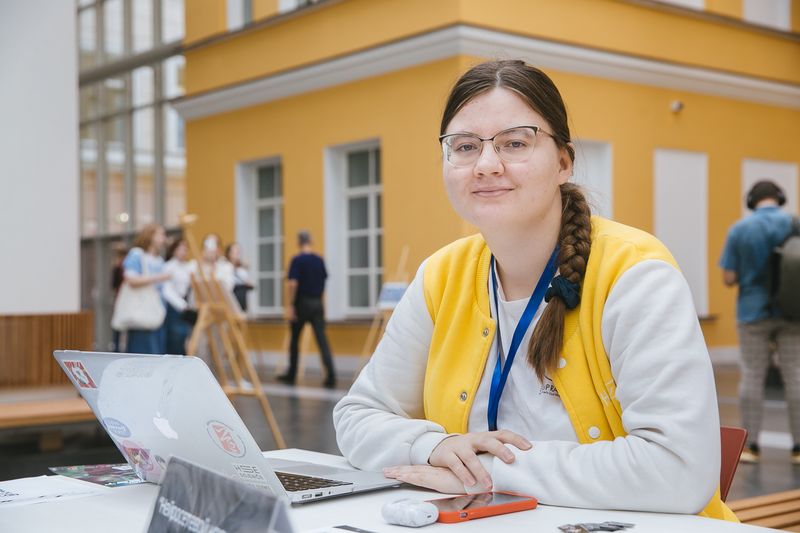
Ekaterina Kozlova, first-year student of the Bachelor’s in Socioeconomic and Political Development of Modern Asia, decided to volunteer for ARTificial Fest because she believes that ‘neural networks are something that move the world forward.’ ‘As someone who is engaged in content, I actively use neural networks in my work,’ she says. ‘Today I am at an entertainment station where we play charades with help from ChatGPT. I ask it to generate random words for the participants to describe to each other.’
The HSE News Service also spoke to visitors of ARTificial Fest about why they were interested in the event and how they use AI in their own lives.
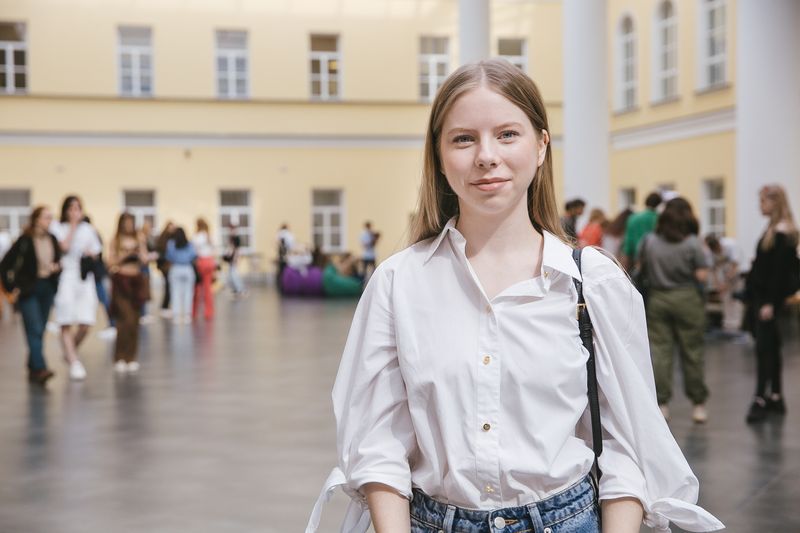
Anastasia Prorokova, first-year student of the Bachelor’s in Interior Design, decided to come to the festival in order to get to know the university better. ‘I just played charades and got bonus stickers that I can exchange for prizes,’ Anastasia explained. ‘I am very happy to be at HSE University. I have great expectations and I’m getting into my studies.’
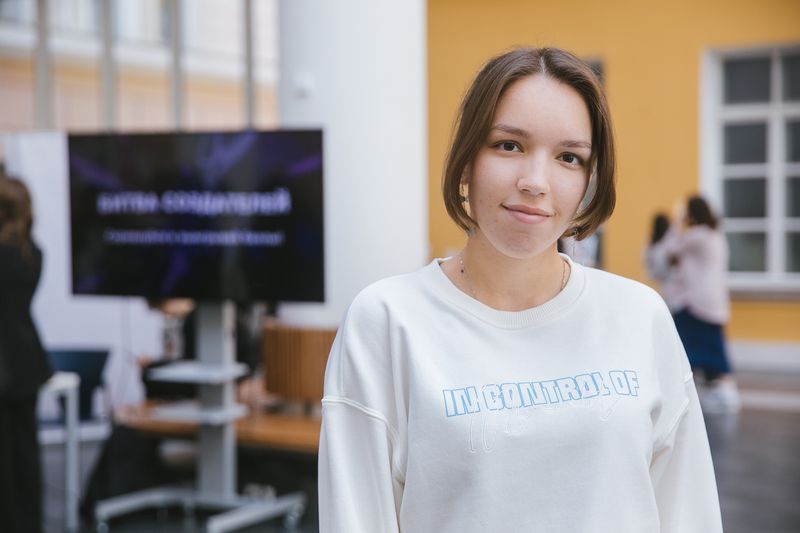
Tatyana Moroz, first-year student of the Bachelor’s in Cognitive Neurobiology, believes that the topic of neural networks may be relevant to her future education. ‘I just visited a station where there was a battle of creators. We logged into a Telegram bot and competed to create the most beautiful picture,’ she said. ‘I am sure that my time at HSE University will be interesting. The people here are open and it is easy to get to know them.’
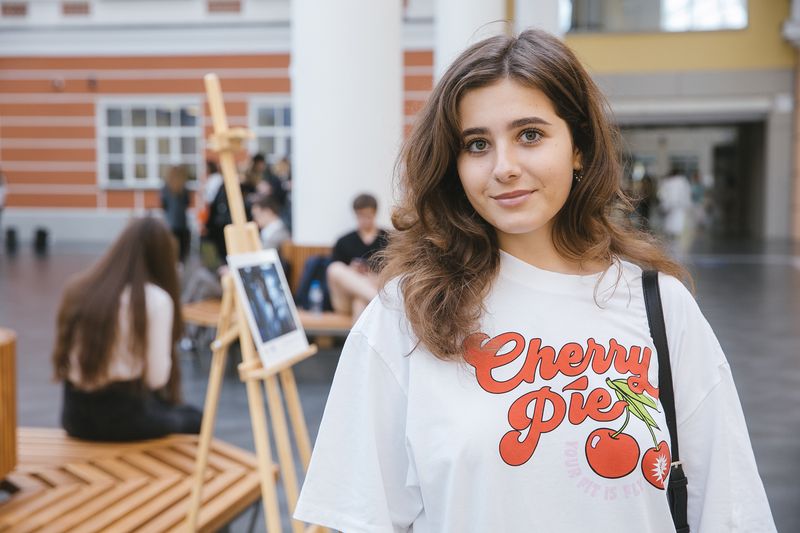
Polina Ilkanich, first-year student of the Bachelor’s in Media Communications, liked the Kandinsky 2.2 exhibition most of all. ‘There are interesting ideas; each picture is unique and eye-catching. The neural network combines the old and the modern, and together this looks really cool,’ Polina explains.
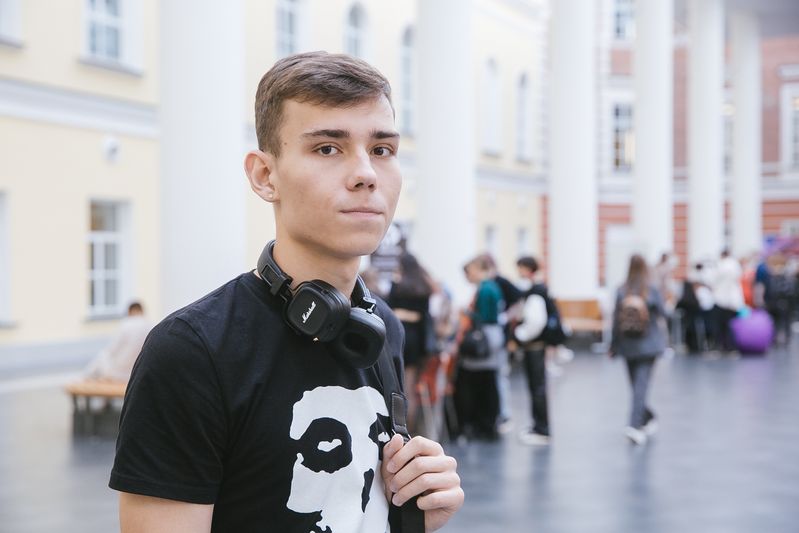
Daniil Kurzukov, first-year student of the Bachelor’s in Design, has already been using AI in his work for a long time. ‘For example, I use ChatGPT, and recently downloaded Photoshop, which works with neural networks,’ he said. ‘You can highlight the area you are interested in working with and set a specific parameter. Then the programme suggests various solutions.’
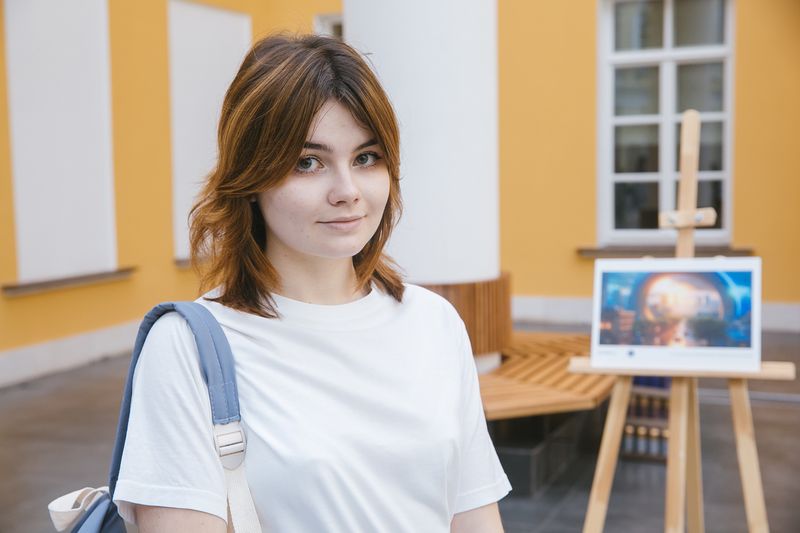
Polina Suzimova, first-year student of the Bachelor’s in Media Communications, enjoyed taking part in all the quests at the festival and attending the lectures. ‘I enjoyed the film-guessing exercise,’ Polina explained. ‘I like those kinds of things, and when I see something like that online, I always take part in it.’ Guests could receive prizes for completing the tasks. ‘You have to earn five stickers, but that was easy because the event was very fun,’ she concluded.
See also:
‘When You Have a Lot to Do, You Find Time for Everything’
Egor Churaev specialises in neural networks. In an interview for the HSE Young Scientists project, he talked about his program for determining the emotions and engagement of online conference participants, his trip to Brazil, and his sports hobbies.
Virtual Mozart, Venture Capital Bot, and Educational Video Generation: How AI is Used at HSE University
In mid-November, HSE University hosted a meetup where faculty, researchers, and administrators presented their projects and shared experiences with using AI technologies in education and research. The meeting was part of the continuing professional development programme 'Artificial Intelligence in Education and Research.'
Beauty in Details: HSE University and AIRI Scientists Develop a Method for High-Quality Image Editing
Researchers from theHSE AI Research Centre, AIRI, and the University of Bremen have developed a new image editing method based on deep learning—StyleFeatureEditor. This tool allows for precise reproduction of even the smallest details in an image while preserving them during the editing process. With its help, users can easily change hair colour or facial expressions without sacrificing image quality. The results of this three-party collaboration were published at the highly-cited computer vision conference CVPR 2024.
HSE University at VK Fest: VR Games and Emotion Recognition
On July 13-14, 2024, the annual large-scale VKontakte festival took place at Moscow’s Luzhniki Stadium. HSE University, as usual, participated in the event. The university's tent featured a variety of activities, including emotion recognition challenge, quizzes about artificial intelligence, IT career testing, a smile detector, VR gaming, and a blue tractor equipped with a smart sprinkler system.
Russian Researchers Improve Neural Networks' Spatial Navigation Performance
Researchers at HSE University, MISiS National University of Science and Technology, and the Artificial Intelligence Research Institute (AIRI) have developed an enhanced approach to reinforcement learning for neural networks tasked with navigation in three-dimensional environments. By using the attention mechanism, they managed to improve the performance of a graph neural network by 15%. The study results have been published in IEEE Access.
Neural Network Developed at HSE Campus in Perm Will Determine Root Cause of Stroke in Patients
Specialists at HSE Campus in Perm and clinicians at Perm City Clinical Hospital No. 4, have been collaborating to develop a neural network capable of determining the root cause of a stroke. This marks the world's first attempt to create such a system, the developers note.
HSE Researchers Teach Neural Networks to Better Detect Humour
A group of scientists from the HSE Faculty of Computer Science has conducted a study on the ability of neural networks to detect humour. It turns out that for more reliable recognition, it’s necessary to change the approach to creating datasets on which neural networks are trained. The scientists presented these results at one of the world's most important conferences on natural language processing — EMNLP 2023.
Neural Networks of Power: AI Unravels Knots and Tangles in Relationships between Humans, Elves and Hobbits
One of the most popular writers of the last century, John Ronald Reuel Tolkien, was born on January 3rd. Researchers from HSE University, AIRI and MISSIS have used machine learning to explore the social connections between the characters of his Middle-earth universe. The algorithm managed to create an accurate picture of the social structures and dynamics of the characters' relationships, providing a unique map of interactions in the epic world. The results of the work were published in IEEE Xplore.
‘In the Future, I Expect Rapid Development of Professions Related to Prompt Engineering’
The English-language programme of HSE Online ‘Master of Computer Vision’ will change its name to ‘Artificial Intelligence and Computer Vision’ in 2024. Andrey Savchenko, the programme academic supervisor, shares how the new name will affect the programme semantics, why AI has become the main federal trend in the field of information technology, and what tasks graduates will solve.
Artificial Intelligence as a Driver of Digital Transformation
In December, the HSE Institute for Statistical Studies and Economics of Knowledge and the HSE AI Research Centre participated in UNCTAD eWeek to discuss the future of the emerging digital economy. One of the topics discussed during the conference was artificial intelligence and its applications in driving the digital transformation of industry sectors. The session was co-organised by HSE University.


